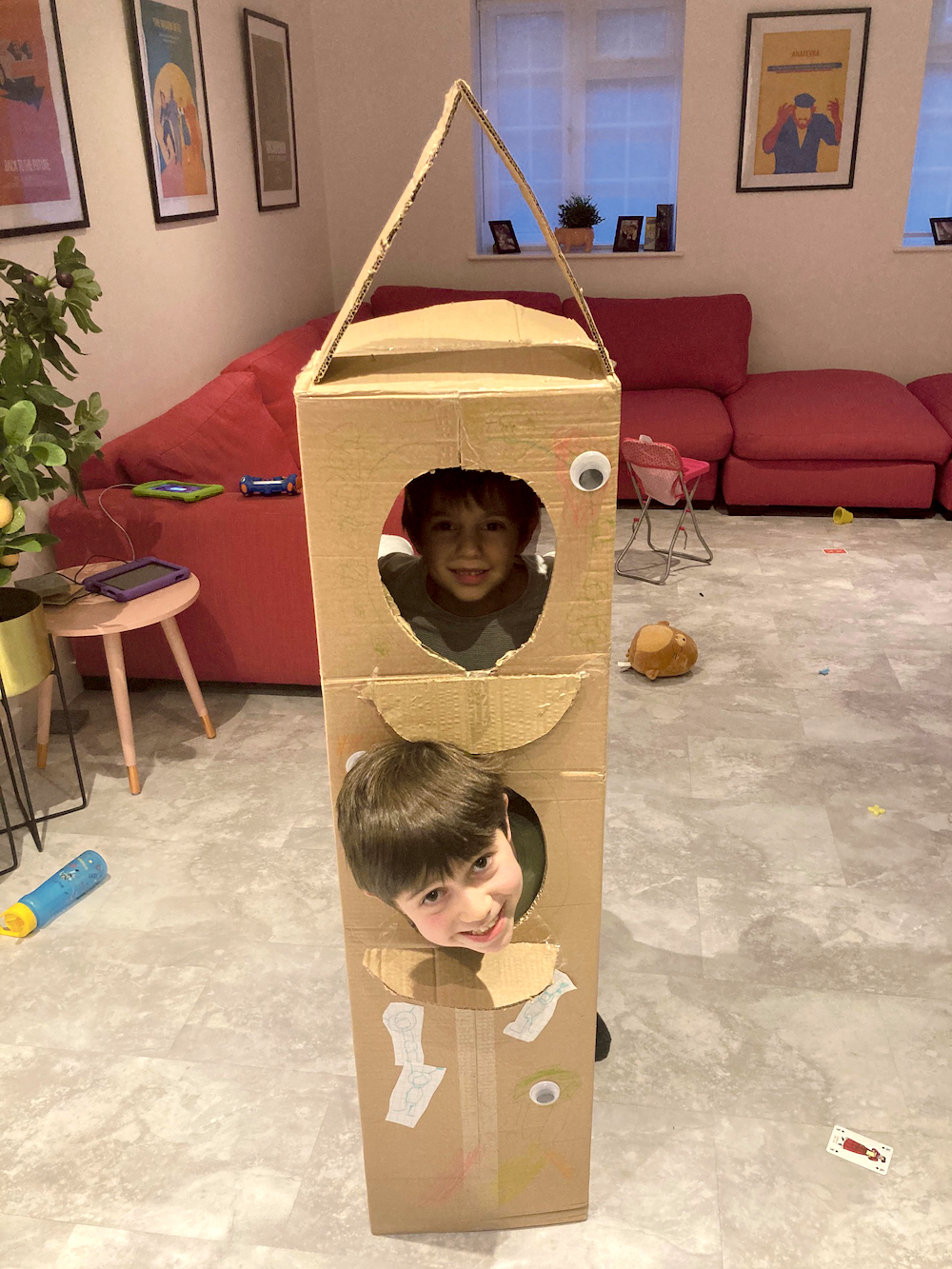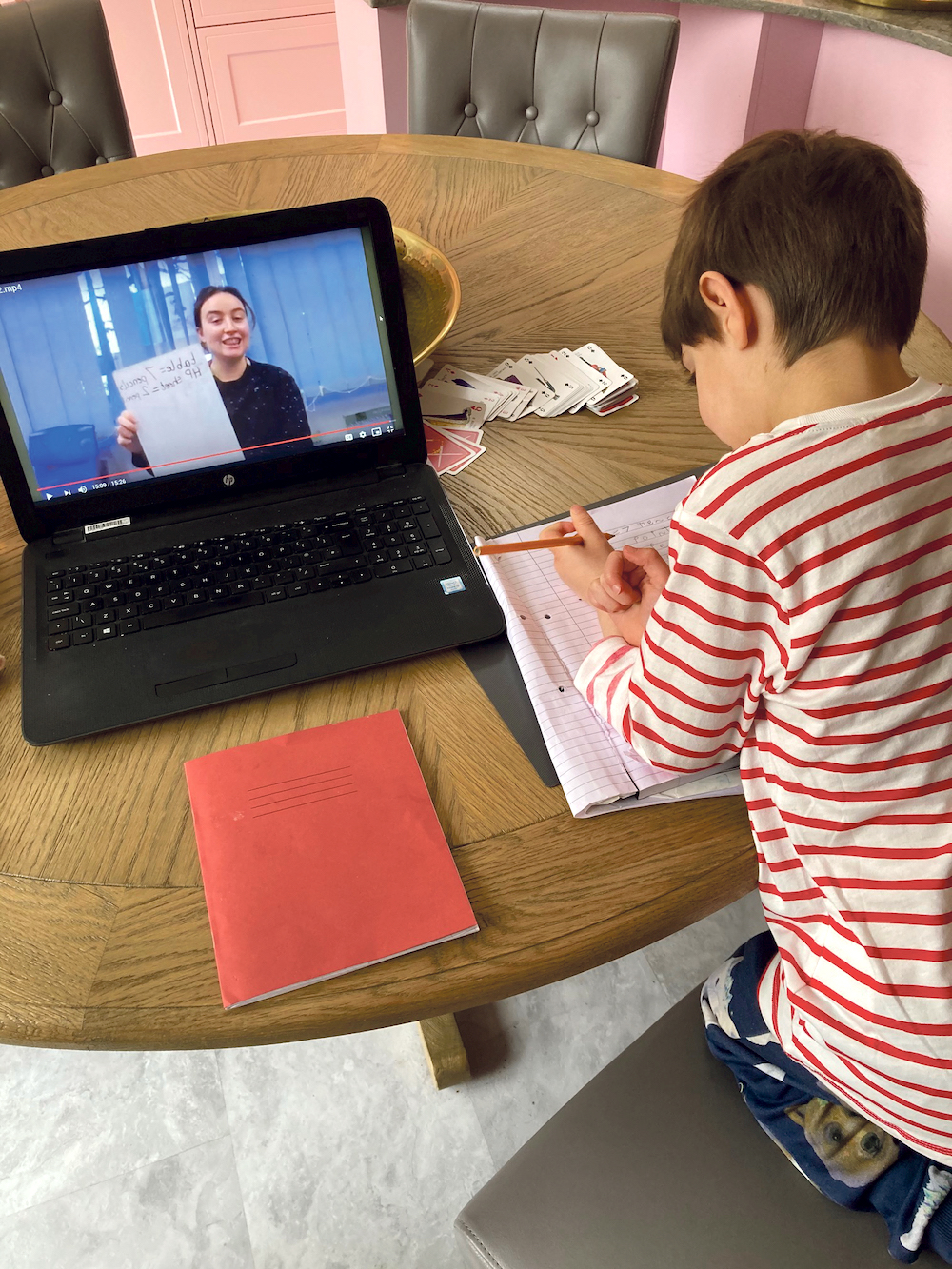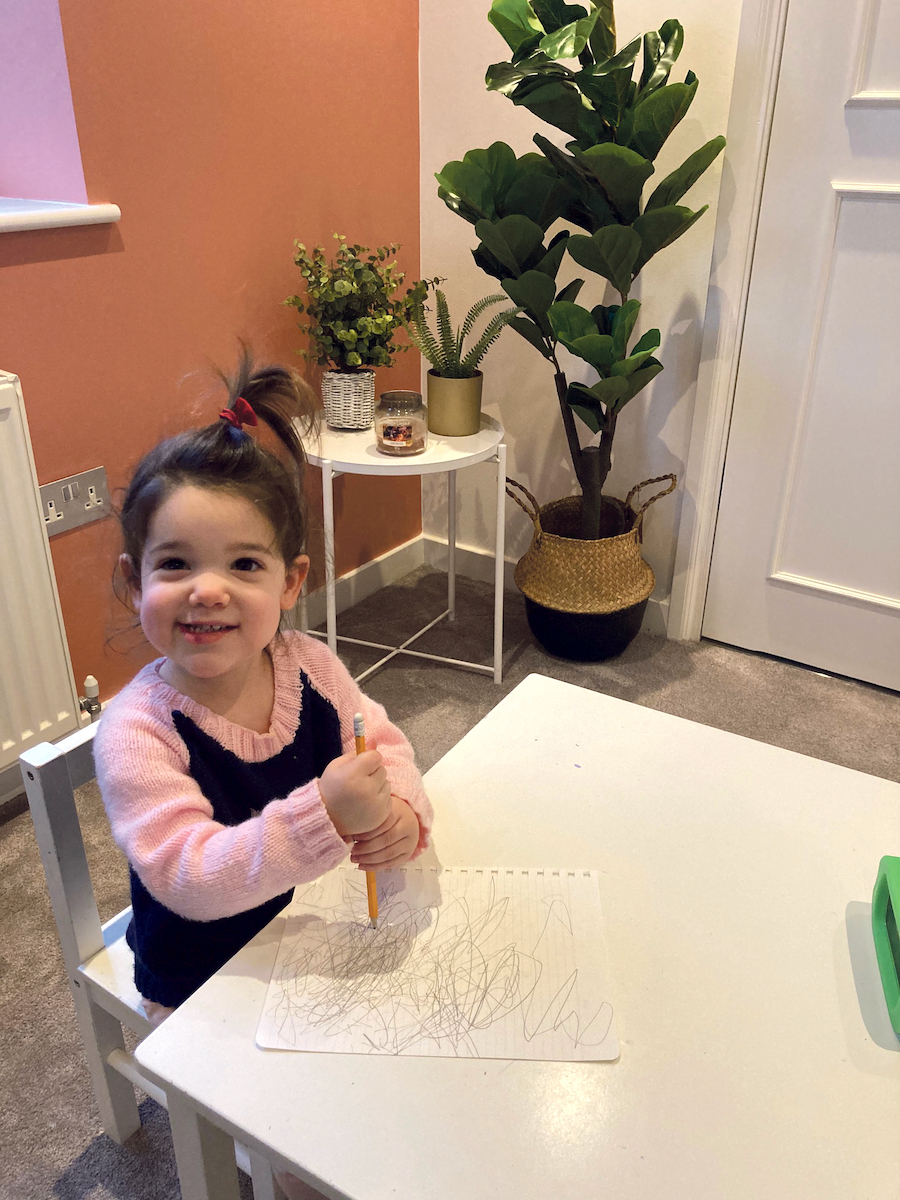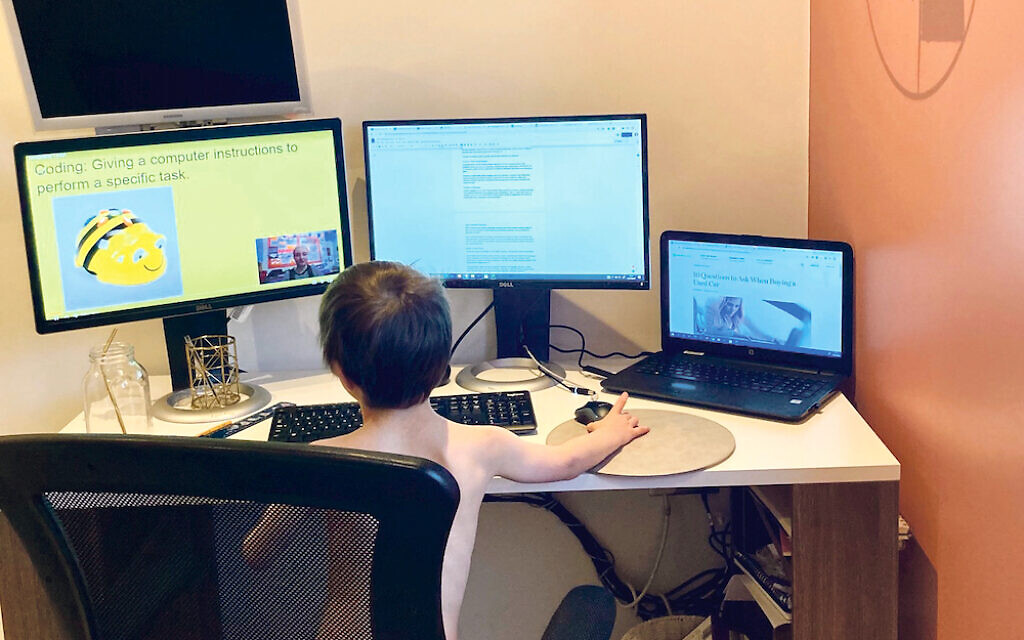Special Report on home education: ‘Make a timetable but skip the class warfare’
As families continue to cope with the pandemic's impact on educating young people, Claire Belle Freed shares some tips to help you sail through lockdown learning
It is the word met with groans and heart palpitations by parents across the country. The word we prayed would not be uttered again. But as soon as Boris Johnson made his announcement at the beginning of January, it was the concept we all needed to embrace – reluctantly, joyfully, or with a side of gin and tonic: home-schooling.
After my husband and I homeschooled my seven-year-old and five-year-old during the first lockdown (while also juggling a baby and jobs), we swore that it was something we could never do again.
I, much like many of the optimistic population, attempted to make the best of the situation. I made a timetable, a meal plan, snack allocations (they eat 48 snacks a week. I did the maths), daily walks, those blasted Joe Wicks workouts, and I told myself, as my brilliant father often reminds me during times of crisis, that “this too shall pass”.
Get The Jewish News Daily Edition by email and never miss our top stories Free Sign Up
Well, it did pass. Momentarily. And now it is back. And the kids are bigger, more demanding, and (I don’t know how it is possible) hungrier than before. Google Classroom is still installed on every device, but this time around, all attempts at timetables, menus and routines have been chucked out of the window. Along with my sanity, and any hopes of a conversation with my husband before 8pm.
But have we learned anything from the first round of homeschooling? Besides what a conjugated vowel is. Have things changed this time to make homeschooling easier? Or does it fill parents with the same dread that descended in March?
“It’s just far more than I can take,” said a mother whose children attend
a Jewish primary school in north London.
“My husband and I both work and, as we are not key workers, our children are home. We must work, or we won’t be paid. And we must homeschool, as the gap in schooling is already so big. It’s unsustainable.”
Michal Dwek Rosenbaum, whose children attend Rosh Pinah, is coping far better this time around.
“The first time, I hated homeschooling. There were no lessons and no structure. We were all so frustrated.”

So, what has changed? “The school has really stepped up to the plate. They have live lessons every day with follow-on work. This has created far more structure and normalcy.
“I can leave them to get on with lessons and do what I need to do around the house. Even though they miss their friends so much, this structured way of the school being in control of lessons is making it easier.”
If you are struggling (guilty), Joanie Adler, of Joanie Adler Education, has valuable advice to help us navigate through the learning landmine.
“Get into the habit of a routine. Kids of all ages respond so well to structure. This will also help parents to carve out time for breaks, getting on with their own work, snack time and
screen time.”
Speaking of screen time, it can be so tempting to let them binge, but Adler stresses: “No screens until their work is complete. Try to get them to focus on calming activities if you need to concentrate on work or helping another child.”
She also advises to have realistic expectations. “One-to-one requires a lot more focus and concentration. Follow their lead. If they are getting distracted or irritated, then take a break. This will give you all a chance to calm down and regroup.”

Loren Palman, a teacher at a Jewish school in London, agrees. “My advice to parents who are keen to strike a balance between providing the right environment for homeschooling is to create structure for yourself and your children.
“Create a timetable that suits you, a time for the children to get up and dressed and be ready to start learning.
“Try to incorporate an activity towards the end of the day that the children can look forward to. This will help to restore a sense of normality and family life that can get lost during lockdown.”
And what about the overwhelming amount of pressure we parents find ourselves under, I ask her. “Don’t put too much pressure on yourself,” Palman continues.
“Even as a teacher, I have struggled at times to homeschool my own children. We find ourselves in exceptional circumstances and, ultimately, the well-being of our children and ourselves is paramount.”
Working, lessons with the kids (begging them to sit still and pay attention), uploading work, preparing three meals a day for everyone, keeping the house clean, laundry done, fridges stocked and everyone happy and healthy is more than most people could ever cope with.

Yet we are doing it. We are educating our children, whether we do one lesson a week or all of them. And, as exhausting as it can be, I can’t help but feel proud of all of us.
Whether you have embraced it or hate it, just remember you are not alone. We will get through this, and if it means a little (or a lot) extra screen time, Among Us, bribery and snacks, then do it.
Schools will be back. Our lives will return. And we will be able to reclaim our homes once again. Just like my dad says: “This too shall pass.”

Thank you for helping to make Jewish News the leading source of news and opinion for the UK Jewish community. Today we're asking for your invaluable help to continue putting our community first in everything we do.
For as little as £5 a month you can help sustain the vital work we do in celebrating and standing up for Jewish life in Britain.
Jewish News holds our community together and keeps us connected. Like a synagogue, it’s where people turn to feel part of something bigger. It also proudly shows the rest of Britain the vibrancy and rich culture of modern Jewish life.
You can make a quick and easy one-off or monthly contribution of £5, £10, £20 or any other sum you’re comfortable with.
100% of your donation will help us continue celebrating our community, in all its dynamic diversity...
Engaging
Being a community platform means so much more than producing a newspaper and website. One of our proudest roles is media partnering with our invaluable charities to amplify the outstanding work they do to help us all.
Celebrating
There’s no shortage of oys in the world but Jewish News takes every opportunity to celebrate the joys too, through projects like Night of Heroes, 40 Under 40 and other compelling countdowns that make the community kvell with pride.
Pioneering
In the first collaboration between media outlets from different faiths, Jewish News worked with British Muslim TV and Church Times to produce a list of young activists leading the way on interfaith understanding.
Campaigning
Royal Mail issued a stamp honouring Holocaust hero Sir Nicholas Winton after a Jewish News campaign attracted more than 100,000 backers. Jewish Newsalso produces special editions of the paper highlighting pressing issues including mental health and Holocaust remembrance.
Easy access
In an age when news is readily accessible, Jewish News provides high-quality content free online and offline, removing any financial barriers to connecting people.
Voice of our community to wider society
The Jewish News team regularly appears on TV, radio and on the pages of the national press to comment on stories about the Jewish community. Easy access to the paper on the streets of London also means Jewish News provides an invaluable window into the community for the country at large.
We hope you agree all this is worth preserving.
-
By Brigit Grant
-
By Laurent Vaughan - Senior Associate (Bishop & Sewell Solicitors)
-
By Laurent Vaughan - Senior Associate (Bishop & Sewell Solicitors)
-
By Laurent Vaughan - Senior Associate (Bishop & Sewell Solicitors)
-
By Laurent Vaughan - Senior Associate (Bishop & Sewell Solicitors)






















